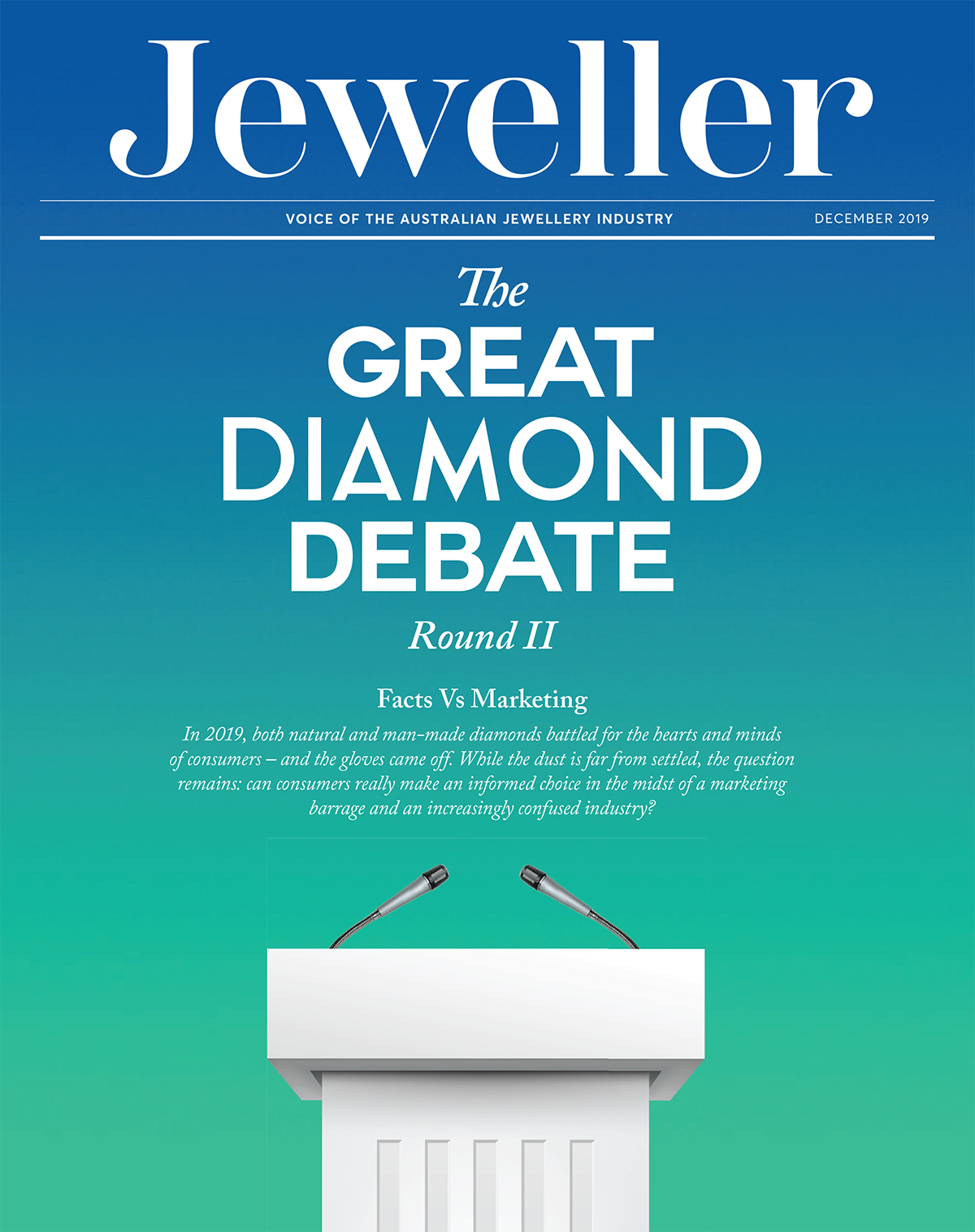 Key points Key points
• Increasingly, consumers of diamonds are basing their purchasing decision on social and environmental considerations • Consumers do not trust companies to honestly communicate their positive attributes – they require third-party verification • These findings present a promising marketing opportunity for both natural and lab-grown diamond companies, and retailers |
While that doesn’t trip off the tongue, the report contains some important observations.
The major point is this: about 40 per cent of consumer-purchasing decisions are driven by knowledge of social and environmental responsibility, as well as country of origin claims.
In addition, consumers stated that they would pay a premium to have detailed knowledge about the diamonds they purchase, and would value knowing the country of origin at a jewellery store’s counter.
Since consumers value independent verification of claims about social and environmental responsibility, as well as provenance, this is something retailers and brands should take into consideration.
Further analysis of the report – published by MVI Marketing, a luxury brand research firm – shows that one of the most important considerations for retailers (after the 4Cs, grading and brand/company reputation) is that a natural diamond has been produced using socially and environmentally responsible methods. The same applies for lab-grown stones.
However, the report found that consumers are not prepared to automatically accept the word of a brand or company concerning its ‘green’ or ethical credentials – and nor should they.
A majority of consumers want to know that there are hard facts and data to support a company’s claims and assertions.
That’s where the third-party verification comes in; 48 per cent of respondents to the study said third-party verification of a diamond’s country of origin and its social and environmental compliance was ‘very important’, and 41 per cent said it was ‘somewhat important’.
For lab-grown diamonds, those numbers were 44 percent and 42 percent respectively.
These consumers also say they would, ideally, choose certified responsibly mined or sustainably manufactured lab-grown diamonds over non-certified diamonds, to the tune of 86 per cent (for mined diamonds) and 84 percent (for lab-grown diamonds).
Informing your customers
We already know that today’s consumers are environmentally and ethically minded, and that will only increase in the future as Gen Z come of age and force companies to enact changes in the way they do business, or risk losing a huge swathe of influential customers.
Open most diamond mining company’s web pages and there are sections dedicated to sustainability, the environment and corporate social responsibility.
The Diamond Empowerment Fund – a global non-profit organisation supported by the diamond industry – is dedicated to spreading the message that ‘diamonds do good’.
It does so by supporting initiatives for people in ‘diamond communities’ – either diamond-producing countries or regions where natural diamonds are manufactured.
Its projects include education, women’s empowerment, and providing care and support for youth impacted by HIV/AIDS.
Yet, while there’s already so much positive work currently being undertaken, just saying so isn’t enough to satisfy savvy and knowledgeable consumers who spend large amounts of time researching products before they buy.
When it comes to marketing, there’s also no denying the power of social proof.
Social proof is an element of behavioural psychology, in which people trust and emulate sources of knowledge, including celebrities, experts, friends, certification and current users of a product.
Think of it as word-of-mouth advertising. Essentially, doing good is great, but it’s so much more powerful when someone else says it for you!
Given these factors, it’s critical for both natural and lab-grown diamond producers to embrace third-party certification and verification of their ethical and sustainable claims – and then fully and clearly communicate them to consumers.
Critically, that certification and authentication needs to be available to customers at the point of retail; having this will ultimately build trust and help secure the sale.
As we know, in the diamond industry, trust is the key. It’s what consumers demand, and it’s what they deserve.
View & Download eMag
To download PDF version click here.
 OUT NOW!
READ IT ALL IN JEWELLER'S FEATURE SPECIAL Did you need full access to read all the stories?
From only 26c a day you can access 10 years' worth of
content in Jeweller's Business Library. Click here to subscribe » |